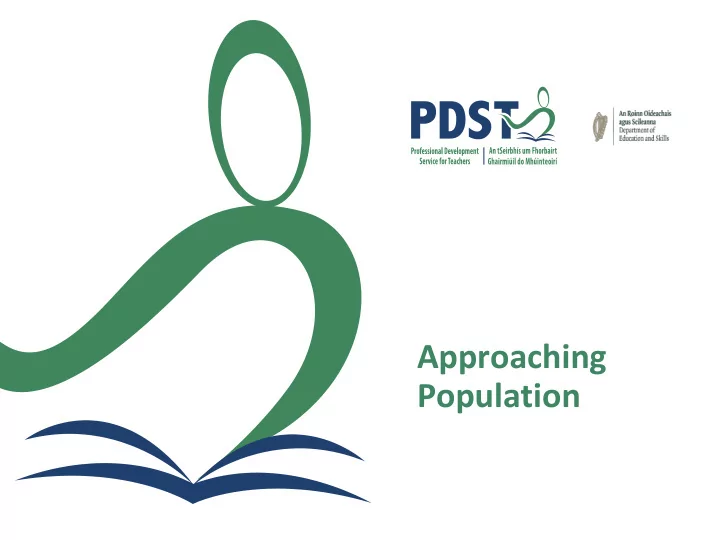

Approaching Population
Population Spaceship Earth People and planet Inspectorate encourages the study of population in 1 st Year Reduce emphasis on Physical in 1 st Year Population often regarded as challenging Relevant to Junior and Leaving Certificate
Reasons for High Densities • Intensive agriculture • Rich alluvial soils • Flat land • Climate • Industry • Trade • Communications
Reasons for Low Densities • Climate too cold too dry • Poor soils • Relief too high too exposed • Isolation
Map Activity Integrating Numeracy • Working out densities using multiplication • Working out average densities • Graded worksheet
Map 1
Map 2
Population Density on OS Maps • Marsh and boggy land • Floodplains • Relief • Urban areas • Urban sprawl • Fertile agricultural land
Graphing Natural Population Change • Graph the birth rate for each decade from 1950 to 2009 • Graph the death rate for each decade from 1950 to 2009 • Shade in the natural change
Natural Change Graph • Title • Axes named • Units shown • Birth rate graph • Death rate graph • Natural increase shaded
Population 1926-2006 4.4 4.2 4.0 3.8 Millions 3.6 3.4 3.2 3.0 2.8 2.6 1926 1936 1946 1956 1966 1976 1986 1996 2006 Years
Components of Population Change 80 70 60 50 40 Natural increase Thousands 30 20 Population change 10 0 -10 -20 Net migration -30 -40 -50 26-36 36-46 46-51 51-56 56-61 61-66 66-71 71-79 79-81 81-86 86-91 91-96 96-02 02-06 Intercensal period
Demographic Transition Model
Living graphs • Humanises the graphical information • Help students to relate to information • Encourages thinking • Placement of statements must be based on information from the graph
Ireland’s Pyramid 2006
Recommend
More recommend